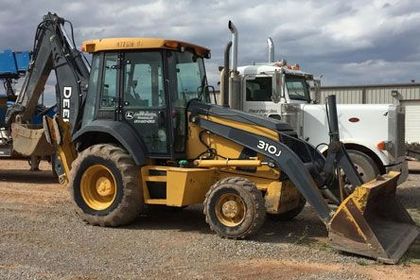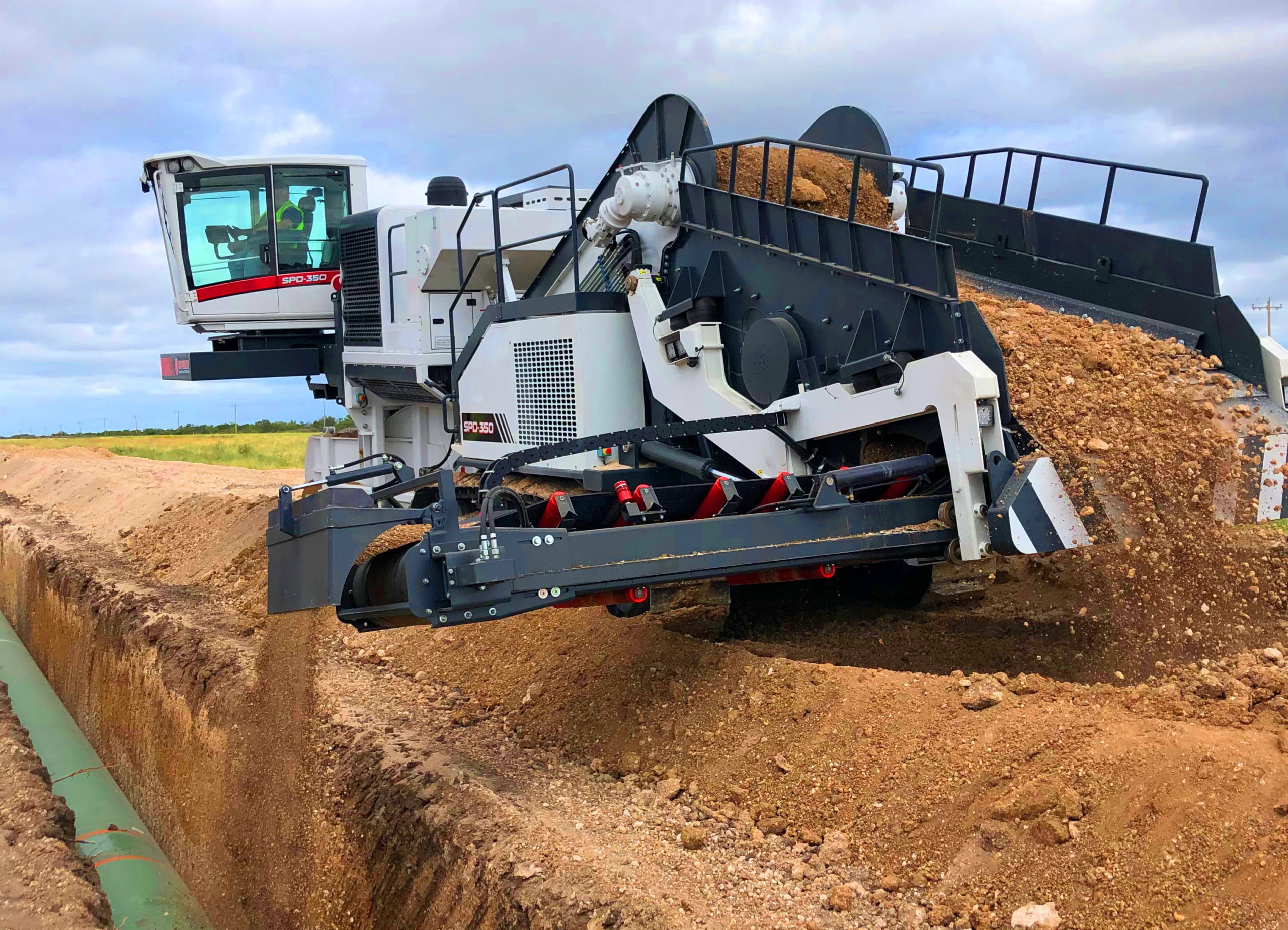Superior Rentals midland: local company profile for field managers
A Comprehensive Overview to the Different Sorts Of Oil Field Equipment and Pipeline Equipment Available
The oil and gas industry relies greatly on specialized tools for efficient extraction and transport. Different sorts of machinery, from drilling rigs to storage space tanks, play crucial duties in this intricate process. Each tool offers distinct functions that add to general operational success. Comprehending these elements is vital for any individual associated with the sector. As the market evolves, so as well do the innovations that sustain it. What innovations are on the horizon?

Drilling Rigs: The Foundation of Oil Exploration
Drilling rigs act as the vital machinery in the domain name of oil expedition, allowing firms to accessibility hydrocarbon books buried deep below the Earth's surface area. These rigs can be found in various kinds, including land rigs, offshore rigs, and mobile units, each developed to operate in details atmospheres. Equipped with innovative innovation, drilling rigs can permeate geological developments with accuracy, guaranteeing effective source extraction. The architectural honesty and operational abilities of these rigs are critical, as they have to stand up to severe conditions and considerable pressures. In addition, the option of an exploration rig affects the general job expense and timeline, making it a vital consideration for oil companies seeking to optimize their exploration efforts and make the most of efficiency in their operations.
Pumps: Essential for Liquid Activity
In the oil removal process, the duty of pumps is substantial, facilitating the movement of fluids throughout various stages of production. Pumps are necessary for delivering unrefined oil, water, and other fluids from below ground tanks to the surface and then through pipes to refineries. They can be found in various kinds, consisting of centrifugal, favorable variation, and completely submersible pumps, each serving certain functions based upon the liquid features and operational demands. Centrifugal pumps are frequently utilized for their effectiveness in high-flow applications, while positive variation pumps master taking care of viscous liquids. The option of pump influences total effectiveness, operational safety and security, and maintenance prices. Appropriate selection and maintenance of pumps are vital for optimizing manufacturing and minimizing downtime in oil field procedures.
Valves: Managing Circulation and Pressure

Valves play an important role in handling the circulation and stress of liquids within oil fields and pipelines. Various sorts of valves offer unique applications, each designed to satisfy particular features fundamental for efficient operation - Superior Rentals near me. Understanding the features and usages of these valves is important for maximizing system performance and safety and security
Kinds of Valves
Essential components in oil area procedures, shutoffs play an important duty in managing the flow and pressure of liquids within pipelines and devices. Numerous sorts of valves are made use of to satisfy the varied needs of oil and gas production. Usual types consist of gateway shutoffs, which provide a straight-line flow and marginal pressure decrease; world shutoffs, known for their strangling capacities; and sphere valves, acknowledged for their quick on/off control. Additionally, check shutoffs stop backflow, while butterfly shutoffs use a lightweight service for managing circulation. Each valve type is developed with details products and arrangements to withstand the rough problems commonly found in oil areas, guaranteeing reliability and effectiveness in operations. Recognizing these types is critical for reliable system management.
Valve Applications and Features
While different kinds of valves offer distinctive functions, their primary applications rotate around managing flow and stress within oil and gas systems. Valves such as gate, world, and round shutoffs manage fluid activity, guaranteeing peak efficiency and safety and security. Entrance shutoffs are commonly used for on/off control, providing very little flow resistance. World shutoffs, on the other hand, deal precise flow law, making them appropriate for strangling applications. Ball shutoffs are favored for their quick operation and limited sealing abilities. Additionally, stress safety valve are vital for preventing system overpressure, securing equipment stability. On the whole, the ideal choice and application of valves enhance operational effectiveness, making certain the trustworthy transport of oil and gas with pipelines and handling centers.
Compressors: Enhancing Gas Transport
Compressors play a crucial duty in the effective transport of gas, guaranteeing that it relocates efficiently via pipes over lengthy ranges. These devices boost the stress of gas, enabling it to get over rubbing and elevation modifications within the pipeline system. In addition, compressors facilitate the harmonizing of supply and need, suiting fluctuations in consumption and production rates. Various kinds of compressors are employed in the industry, consisting of centrifugal, check here reciprocating, and rotating screw compressors, each offering distinctive benefits based upon the operational demands. Routine maintenance of these compressors is vital to make best use of performance and decrease downtime, inevitably adding to a trusted gas transport network. Their critical feature highlights the importance of compressors in the general oil and gas infrastructure.
Storage Tanks: Safe and Effective Fluid Monitoring
Reliable transport of natural gas counts on numerous sustaining systems, one of which is the proper monitoring of storage tanks. These containers play a crucial function in safely having fluids, making certain that functional efficiency is kept while lessening environmental dangers. Constructed from sturdy products, they are developed to endure high stress and destructive components. Appropriately sized and strategically situated, storage containers facilitate the smooth circulation of natural gas and various other liquids, stopping bottlenecks in supply chains. Normal upkeep and surveillance are essential to detect leaks or architectural problems, advertising safety and conformity with regulative criteria. Eventually, the reliable administration of tank is crucial for the total integrity and dependability of the oil and gas sector's fluid handling systems.
Pipeline Solutions: Infrastructure for Transportation
Pipeline systems act as the backbone of the oil and gas sector, promoting the efficient transportation of hydrocarbons over vast ranges. These systems contain numerous parts, including pipes, valves, pumps, and compressors, all carefully created to assure seamless circulation. The materials made use of in pipeline building, often steel or high-density polyethylene, are selected for toughness and resistance to deterioration. Pipeline networks can extend throughout land and water, connecting production sites to refineries and circulation. Additionally, advanced innovation makes it possible for real-time monitoring of flow prices and stress levels, improving functional performance. The strategic placement of these pipes minimizes environmental effect while optimizing resource access, thus playing a crucial duty in conference energy demands worldwide.
Safety Equipment: Ensuring Employee and Environmental Management
The operation of pipeline systems, while vital for power transport, also presents significant security challenges for employees and the atmosphere. Safety tools plays a considerable role in minimizing these dangers. Personal safety equipment (PPE) such as headgears, gloves, and non-slip shoes safeguards employees from physical hazards. In addition, gas discovery systems monitor for leakages, guaranteeing that dangerous compounds do not posture a danger to personnel or the bordering community. Emergency situation shutdown systems are important for promptly halting procedures during a situation, protecting against possible disasters. Spill control products, including absorbents and obstacles, are basic for lessening environmental impact. On the whole, purchasing all-inclusive safety devices is vital for maintaining functional stability and protecting both employees and the environment in the oil and gas field.

Often Asked Concerns
How Do I Choose the Right Oil Field Equipment for My Task?
Picking the ideal oil area devices involves reviewing project specifications, spending plan restraints, and operational requirements. Take into consideration aspects such as equipment reliability, compatibility with existing systems, and the distributor's track record to guarantee peak performance and safety.
What Are the Maintenance Needs for Oil Field Equipment?
Maintenance requirements for oil area tools consist of regular inspections, lubrication, and timely repairs. Operators should likewise comply with maker guidelines, display performance metrics, and guarantee conformity with security regulations to enhance durability and efficiency.

Just How Can I Make Certain Compliance With Environmental Rules?
To guarantee conformity with environmental regulations, companies need to carry out normal audits, carry out finest methods, buy training, preserve appropriate paperwork, and stay updated on legislation (Superior Oilfield Rentals oilfield). Cooperation with environmental agencies can also enhance adherence to guidelines
What Is the Typical Lifespan of Pipeline Equipment?
The average life expectancy of pipeline equipment commonly varies from 20 to 50 years, depending on factors such as worldly high quality, environmental problems, and maintenance practices. Normal assessments can considerably influence long life and functional efficiency.
Exactly how Do I Safely Deliver Oil Field Equipment to Remote Locations?
Transporting oil area devices to remote areas needs careful preparation, including course assessment, securing licenses, using ideal cars, and ensuring safety and security procedures are adhered to. Appropriate training and interaction amongst teams are vital for effective transport.